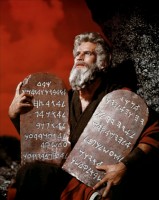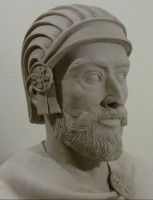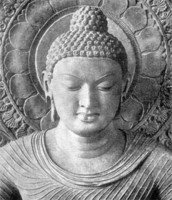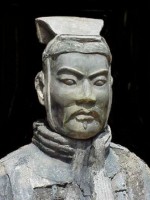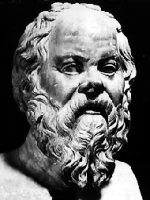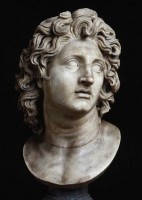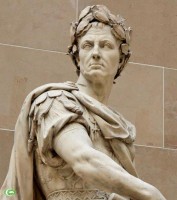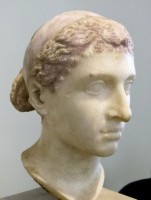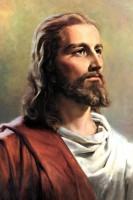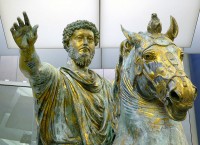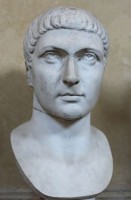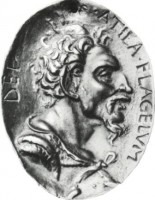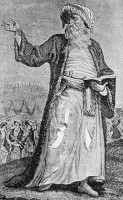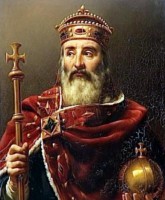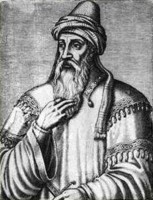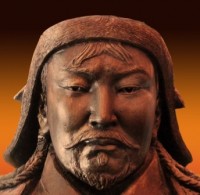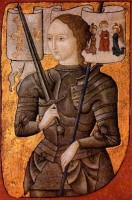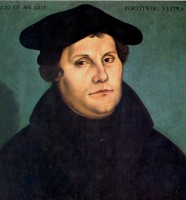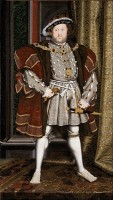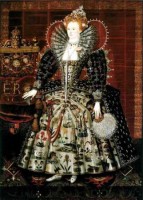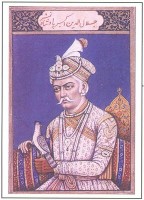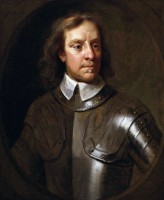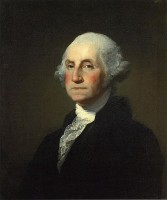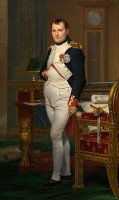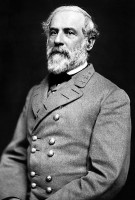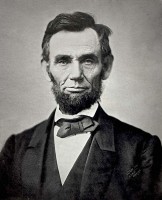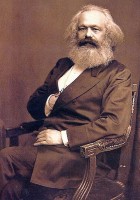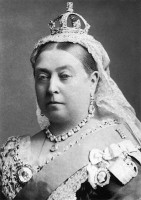Leadership can come in a variety of forms. From leading a group of people to something better to creating an idea that many people follow, being a leader takes character, intelligence, and other admirable traits. Below is a list of the most influential and famous leaders in the history of the world.
Famous Leaders of Antiquity
Famous Leaders – 1000 to 1700
Famous Leaders – 1700 to 1900
Famous Leaders – 1900 to Today
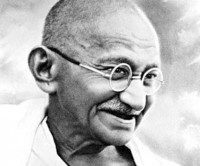 |
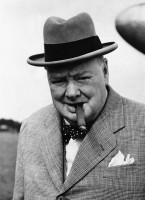 |
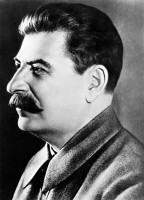 |
| Mahatma Gandhi (1869-1948) Nationality: Indian Known for: Leader of Indian nationalism in India and helped the nation become independent In British-controlled India, Gandhi led the people of his nation to involve themselves in non-violent civil disobedience in order to obtain independence. He led the people to challenge the salt tax, which was imposed by Britain by organizing the Dandi Salt March in 1930. |
Winston Churchill (1874-1965) Nationality: British Known for: Prime Minister of the UK from 1940 to 1945, during WWII Churchill is often regarded as one of the greatest wartime leaders in history. He has received numerous awards for his leadership, including the Nobel Prize in Literature and he was also the first person to become an honorary US citizen. When WWII broke out, he became Prime Minister to replace Neville Chamberlain. |
Joseph Stalin (1879-1953) Nationality: Russian Known for: Leader of the Soviet Union from 1920s to 1953 Stalin was the leader of the Soviet Union for 30 years from 1922 until he died in 1953. During his leadership years, he moved the country from Lenin’s New Economic Policy to a centralized economy which led to several years of collectivization and industrialization. This led to the USSR becoming an industrial power in the world. |
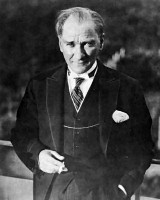 |
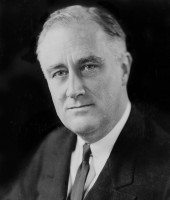 |
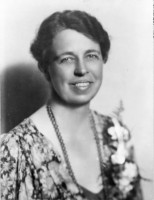 |
| Ataturk (1881-1938) Nationality: Turkish Known for: First President of Turkey As one of the leaders in the Ottoman military, Ataturk rose to prominence during World War I. After the Ottoman Empire was defeated, he was the main person credited with beginning and establishing the Republic of Turkey. He was the nation’s first president and his ideas and strategies helped his forces win the Turkish War of Independence. |
Franklin D. Roosevelt (1882-1945) Nationality: American Known for: 32nd President of the USA, served four terms The only US president to serve four terms – FDR – was the nation’s leader through some tough times, including the Great Depression and through a time of war. He worked alongside Stalin and Churchill to lead the Allied forces to defeat Nazi Germany and Japan during WWII. He also established the New Deal, which was a series of social programs designed for reform and relief. |
Eleanor Roosevelt (1884-1962) Nationality: American Known for: Served four terms as First Lady to FDR Eleanor Roosevelt was one of the leaders in convincing the US to join the United Nations. She served as the organization’s first chair on its Commission on Human Rights. As such, she helped draft the Universal Declaration of Human Rights. |
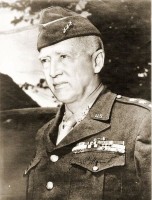 |
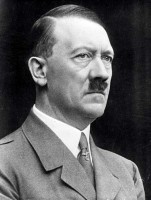 |
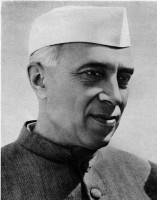 |
| General George S. Patton (1885-1945) Nationality: American Known for: General during WWII General Patton is best known for his effective leadership of US troops during World War II. He successfully led an invasion of Casablanca in North Africa in 1942 and he also led his men to defeat the British during a battle called the Invasion of Sicily. By the end of WWII, he had advanced his troops into Nazi Germany. |
Adolf Hitler (1889-1945) Nationality: Austrian-German Known for: Dictator of Germany from 1934 to 1945 As the leader of Germany’s Third Reich, Hitler was the dictator that was most responsible for instigating WWII throughout Europe. He also called for the execution of millions of Jews and others in the nation who were not of the Aryan race. He also ordered German forces to invade Poland, Czechoslovakia, and other countries. |
Jawaharlal Nehru (1889-1964) Nationality: Indian Known for: First Prime Minister of India Influenced by Mahatma Gandhi, Nehru ruled the nation of India from the 1947 when it first became an independent nation until 1964, when he died. He is credited with establishing the Indian nation-state as it is today – secular, socialist, and sovereign. Gandhi named Nehru as his successor in 1941 and he was a popular leader throughout the nation. |
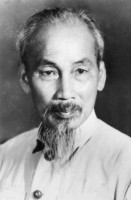 |
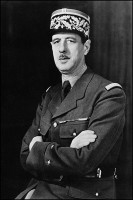 |
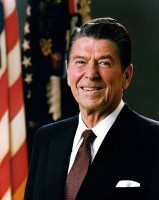 |
| Ho Chi Minh (1890-1969) Nationality: Vietnamese Known for: Prime Minister and President of the Democratic Republic of Vietnam Leading the Viet Minh Independence movement, Ho Chi Minh established the Democratic Republic of Vietnam. He helped defeat the French Union in 1954 before stepping down from his position in 1965. Following the Vietnam War, the city of Saigon was renamed to Ho Chi Minh City. He also served as Prime Minister and President of North Vietnam. |
Charles de Gaulle (1890-1970) Nationality: French Known for: Leader of the Free French Forces during WWII Charles de Gaulle was a military leader during WWII. He became a brigadier general, a rank that he kept for life, and led an excursion during the Battle of France. De Gaulle also served in France’s government and he was the highest French office to reject Nazi Germany’s armistice in June of 1940. |
Ronald Reagan (1911-2004) Nationality: American Known for: 40th President of the USA Reagan had several significant achievements as a leader. One of his first leadership positions was serving as the governor of California. Before that, he served as the Screen Actors Guild president in Hollywood. He is remembered for several actions and ideas, including invading Grenada, the Warn on Drugs, and Reaganomics. |
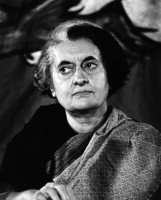 |
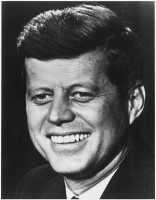 |
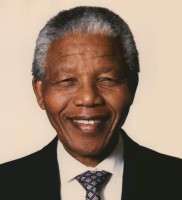 |
| Indira Gandhi (1917-1984) Nationality: Indian Known for: 3rd Prime Minister of India Indira Gandhi was one of the more prominent figures in the Indian National Congress Party and she also served as Chief of Staff from 1947 to 1964 within her father’s administration. She is the only woman to have held the office of India’s Prime Minister and she is considered by many to be the greatest person to hold that office, according to a 2001 poll in India Today. |
John F. Kennedy (1917-1963) Nationality: John F. Kennedy Known for: 35th President of the USA Before being elected to the office of President of the USA in 1960, JFK was a commander during WWII and he also served as a Massachusetts Representative in the US House of Representatives. He also served for seven years in the US Senate. At the time he was elected president, he was the youngest person to serve in that office. |
Nelson Mandela (1918- ) Nationality: South African Known for: Former president of South Africa and anti-apartheid activist Mandela was the first black South African president. At the time, apartheid was a major problem in the country. He was one of the main leaders against this type of institutionalized racism. During his presidency and before, he fought against poverty and he has strived toward racial reconciliation in the country. |
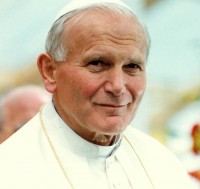 |
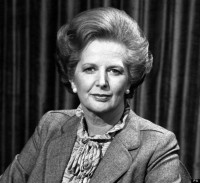 |
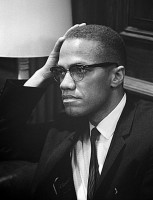 |
| Pope John Paul II (1920-2005) Nationality: Polish Known for: Second longest-running Pope of the Catholic Church Considered to be one of the more prominent leaders in the 20th century, Pope John Paul II helped bring an end to Communism in Poland, his home nation, which led to the end of Communism in other parts of Europe. He is also credited with improving relations between the Catholic Church and other religions, including Judaism and Islam. |
Margaret Thatcher (1925-2013) Nationality: British Known for: Prime Minister of the UK for 11 years Thatcher served as Prime Minister of the UK longer than any other PM in the 20th century. She is also the only female to hold that office. She was often referred to as the “Iron Lady” because of her hardnosed approach and uncompromising style. Her policies have been named “Thatcherism.” |
Malcolm X (1925-1965) Nationality: African-American Known for: Muslim leader and activist for human rights A leader in the area of human rights, Malcolm X has been hailed as one of the more influential African Americans throughout history. His assassination was one of the events that sparked the start of the Black Panther Party. |
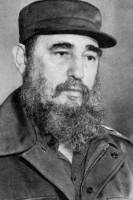 |
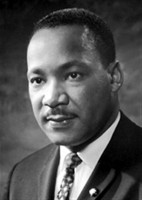 |
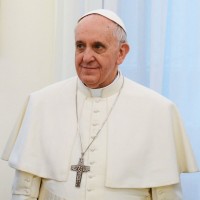 |
| Fidel Castro (1926- ) Nationality: Cuban Known for: Prime Minister and President of Cuba from 1959 to 2008 Castro has served as the Commander in Chief of Cuba’s armed forces, the First Secretary of the nation’s Communist Party, and as a lawyer for the rights of the poor in Cuba. He was also Cuba’s president until 2008. Cuba became a single-party socialist state during his administration. |
Martin Luther King, Jr. (1929-1968) Nationality: African-American Known for: Leader during the African-American Civil Rights Movement An advocate for non-violent civil disobedience, King became the best-known activist during the Civil Rights Movement in the United States. He was one of the co-founders of the Southern Christian Leadership Conference and he helped lead the Montgomery Bus Boycott in Alabama in 1955 which helped begin the Civil Rights Movement. |
Pope Francis (1936- ) Nationality: Argentinian Known for: 266th Pope of the Catholic Church Pope Francis has served in the roles of priest, Argentina’s Provincial superior of the Society of Jesus, cardinal and the Archbishop of Buenos Aires prior to becoming pope in March of 2013 following the resignation of Pope Benedict XVI. He is the first pope to come from the Southern Hemisphere and the first Jesuit pope, too. |
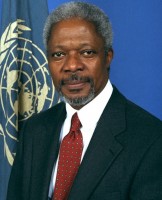 |
 |
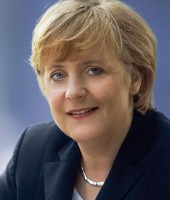 |
| Kofi Annan Nationality: Ghanaian Known for: Former Secretary-General of the United Nations Annan served as the seventh Secretary-General of the UN for nine years. During that time, he was a co-recipient of the Nobel Peace Prize in 2001. He has also held several other prominent positions, including being the head of the Panel of Eminent African Personalities, leading the new Alliance for a Green Revolution in Africa, and several more. |
Aung San Suu Kyi (1945- ) Nationality: Burmese Known for: Leader of the National League for Democracy in Burma Suu Kyi served as the chairperson of the National League for Democracy in Burma from 1989 to 2010 even though she was on house arrest for 15 of those years. She won the Nobel Peace Prize in 1992 and a year later, she won the Nawaharlal Nehru Award for International Understanding. In 2012, she was elected to the Pyithu Hluttaw, which is the lower house of the parliament in Burma. |
Angela Merkel (1954- ) Nationality: German Known for: Chancellor of Germany from 2005- Serving as the Chancellor of Germany since 2005, Merkel is also the leader of the CDU, or Christian Democratic Union, since 2000. Due to her leadership, she has been the recipient of several prestigious awards, including the Vision for Europe Award and an honorary doctorate from the Hebrew University of Jerusalem in 2007, just to name a few. |
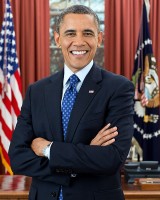 |
||
| Barack Obama (1961- ) Nationality: American Known for: 44th President of the USA Barack Obama graduated from Columbia University and served as a community organizer in Chicago, IL before he completed his law degree at Harvard. He also served as a civil rights attorney, a senator in the IL Senate, and a US Senator before being elected twice to the US presidency. |
